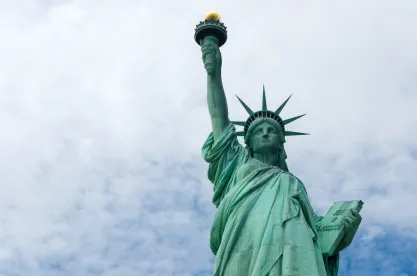On February 22, the United States Citizenship & Immigration Services (USCIS) announced the Inadmissibility on Public Charge Grounds final rule, effective as of February 24. This announcement came after the U.S. Supreme Court lifted the nationwide injunctions against the new public charge rule on January 27.
The New Public Charge Rule
Anyone who received one or more public benefits for more than twelve months in aggregate within any 36-month period (such that, for instance, receipt of two benefits in one month counts as two months) could be held to be a public charge. The rule expands to the following type of cash and non-cash benefits:
-
Supplemental Security Income (SSI)
-
Temporary Assistance for Needy Families (TANF)
-
Supplemental Nutrition Assistance Program (SNAP)
-
Section 8 Project-Based Rental Assistance and Housing Assistance Under the Housing Choice Voucher Program
-
Subsidized Public Housing
-
Federally-Funded Medicaid (with Certain Exclusions)
Any other public non-cash benefit that is not mentioned above will not be considered a public charge of inadmissibility.
Who Is Affected
Such immigrants who are identified to become a public charge will not be issued a U.S. visa, granted admission to the United States, or allowed to adjust status. Any Adjustment of Status application that had been filed before February 24 will be considered under the old rules.
The following immigrants will be subject to the new rule:
-
Immigrants who are in the U.S. applying for a green card
-
Immigrants requesting a visa extension to stay in the U.S.
-
Individuals who are applying to come to the U.S. from abroad
Deciding Factors To Determine a Public Charge
The immigration officer will use the totality of the circumstances while deciding if an immigrant is to become a public charge in the future. The USCIS officer, while determining the inadmissibility of the public charge grounds, must consider the applicant’s age, health, family status, assets, resources and financial status, education and skills, prospective immigration status, expected period of admission and sufficiency of the affidavit of support (Form I-864).
Rule Exemptions
This rule does not apply to refugees, asylees, U-visas for crime victims or T-visas for trafficking victims, individuals applying under the Violence Against Women Act, Special immigrant Juveniles, and those whom the Department of Homeland Security granted a waiver of public charge inadmissibility. A foreign national will not be penalized if any other members of the household, including U.S. citizens, are receiving public benefits. Additionally, a foreign national who is currently serving in the armed forces and Medicaid recipients who are pregnant or younger than 21 years of age will not be disadvantaged by the new rule.



 />i
/>i

